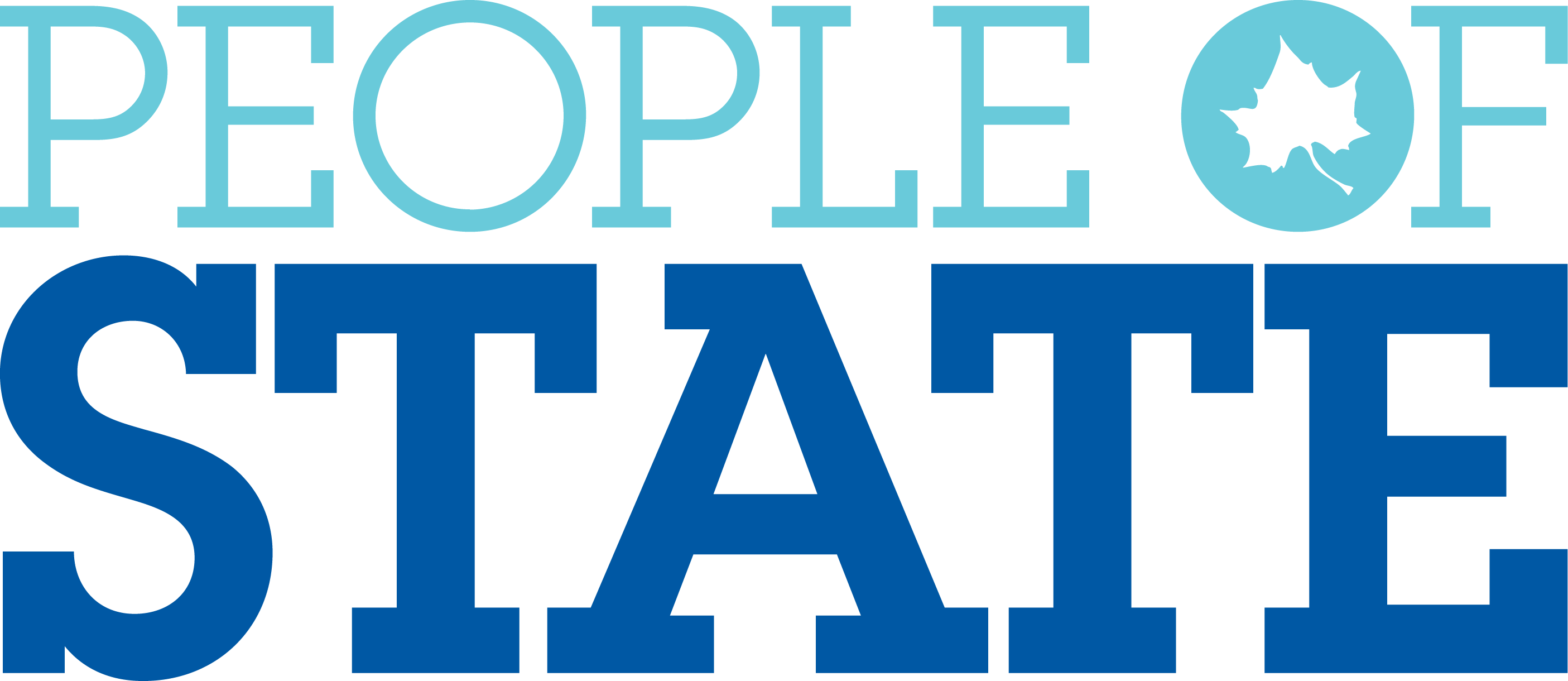
Shannon Anderson
By Indiana State University
May 8, 2020
St. Charles, Ill., native Shannon Anderson, ’17, snagged a job as a supply chain analyst after graduating from Indiana State University with a bachelor’s degree in operations and supply chain management and a minor in French.

What more could she ask for, you ask?
Maybe the chance to mold an idea she developed in her senior year of college that would take her all the way to Boston, Mass., where she is now co-founder and Chief Operating Officer at smileML, a Techstars Air Force company that creates better experiences and safer communities by turning video into actionable intelligence for a variety of applications.
Anderson admits, “We’re finally here, but it’s been a little bit of a winding road to get where we are.”
Spring Semester 2017
Anderson developed the idea for and conducted market research and validation for the application Guess Less, which allows users to upload their clothing sizes and share with friends and family to make gift giving easier.
“This was an idea that is 100 percent different than smileML.”
May 2017
Before graduating from Indiana State University with a bachelor’s degree in operations and supply chain management, Anderson started developing Guess Less with Ethan Petersen, her friend and now Rose-Hulman Institute of Technology graduate.
“I did market research (for creation of this app) and I proved the validity of it. I sent out surveys to people of different demographics. I had this problem where I wanted to buy clothes for friends and family, but I didn’t always know their sizes, so I worked with Ethan to create this app that allows you to share sizes with people of your choice. You can also connect your Pinterest boards so people can know what you like and what your size is, which makes gift giving easy.”
July 2017
Anderson accepted a position as a supply chain analyst with Roche Diagnostics in Indianapolis.
“I wanted to learn how to code and I took one class my last semester of college. It’s actually how I got my job as an analyst at Roche.”
November 2017
Anderson and Petersen began doing user research for Guess Less before launching and got the idea to use emotion recognition during interviews to improve and speed up the process.
“We were conducting user research and realized how time-consuming and difficult it was, so we got the idea to use emotion recognition during user research to make the process easier and faster. Once we launched Guess Less, we pivoted to smileML.”
December 2017
She and Petersen Launched Guess Less in the iOS App Store.
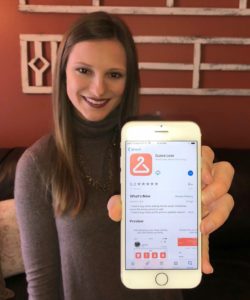
January 2018
Anderson and Petersen started working on smileML.
“My co-founder had some Rose-Hulman alumni connections at Google, so we were able to get plugged in with a user experience team there.”
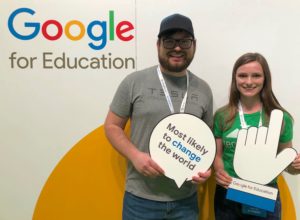
February 2018
Anderson decides to take a week of vacation from Roche to travel to San Francisco with Petersen to present at Google and meet with several other companies about smileML to figure out what companies could use the technology and how it could benefit their businesses.
“They had us come and talk about how we were using Google’s backend products for Guess Less and smileML, and how we might be able to help their user research team with what we were developing. From there, we were able to meet with a few of their User Researchers and work with them to design smileML.”
July 2018
She and her co-founder launched MatchMoji, a game in the iOS App Store that helps collect data and train machine learning models.
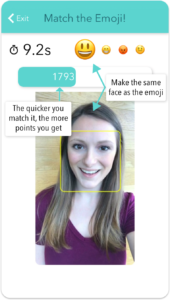
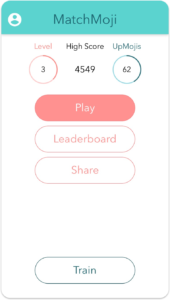
September 2018
smileML gets into the gBETA pre-accelerator program, funded by gener8tor.
“gBETA helped us with our product, getting connections and talking to different user researchers. Then, we applied for Techstars Air Force but didn’t think we’d get in because it usually takes two or three rounds of a startup applying and interviewing before they actually get in. Every round, though, we kept making it to the next round and eventually in January 2019 we found out we made it into Techstars.”
October 2018
Google for Education published a case study on smileML.
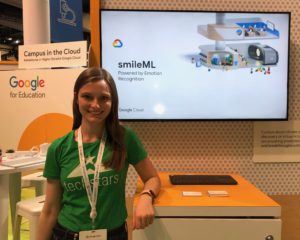
February 2019
smileML launched its first product: a desktop application for user research.
smileML got into the Techstars Air Force Accelerator program, which focuses on dual-use technology for both commercial and defense applications. Anderson quit her job, Ethan took a leave of absence from his PhD program, and they moved to Boston for the 3-month program.
“They made a $120,000 seed investment in smileML which was incredible for our company and helped us jumpstart our business. I told my boss and he said he knew I would eventually go off to bigger and better things, but he didn’t know it would be this soon.”
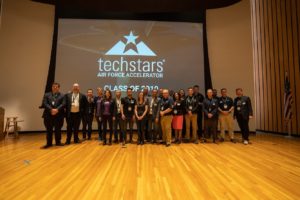
April 2019
The decision is made to pivot from user research to sales.
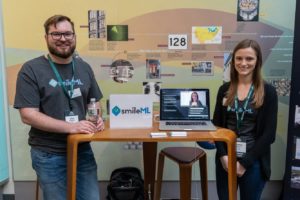
May 2019
smileML pitched at the Techstars Air Force Demo Day, where they announced their new sales application, SaleSpot.
smileML was selected to pitch at the 2019 SOFIC Disrupter Event and moved on to the final round of the event where selected companies began government contract negotiations.
Shannon Anderson testimonial >>
June 2019
smileML permanently relocated from Indianapolis to Boston
“This was supposed to be a temporary move to Boston, but the Techstars Air Force program was amazing and allowed us to build up an incredible network there.”
July 2019
smileML closed a contract with its first paying customer, BAE Systems, to determine the feasibility of using emotion recognition for threat detection. This project was the first of many steps in developing software to detect malicious actors in crowds before they cause harm.
December 2019
smileML was one of 14 companies selected to participate in the SOFWERX Physiological Analysis Tool Tech Sprint. During the tech sprint, smileML collaborated with other Industry Experts, Government Stakeholders, and End Users to develop Physiological Analysis Tools. After one week of rapid prototyping, three capabilities were demonstrated to serve as proof-of-concept solutions for future Special Forces operations.
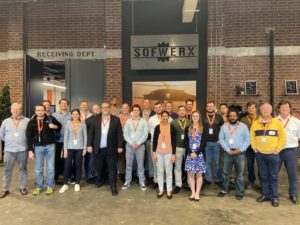
June 2020
smileML was awarded a $1.5M AFWERX Phase II SBIR contract to adapt its commercial emotion recognition for the analysis of in-person interviews for USSOCOM personnel.
In light of the pandemic, smileML is launching a tool to help teams in their transition to remote work: TeamSpirit. TeamSpirit runs during video calls to help users improve communication, stay on track, and end meetings on time.
Check out TeamSpirit on Product Hunt >>
July 2020
smileML will be launching a sales analytics tool, SaleSpot, which analyzes sentiment and body language during sales video calls to provide real-time coaching and identify winning strategies.
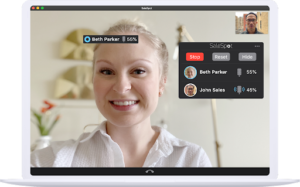
July 2020
smileML will be collaborating with BAE Systems on a follow-on contract.
“We’re very passionate about detecting malicious actors in crowds because we want to save lives. That’s what keeps us up at night and what wakes us up in the morning.”
And this is only the beginning for Anderson’s career. She and Petersen are working to expand their technology to help teams improve communication and productivity over video calls.
“Commercially, we’ve heard some remote workers may not be able to return to work for a year, depending on the state. We’re working on helping teams in their job transition and improving team communication.
One of our tool’s capabilities will help managers and teams know who has spoken and who hasn’t to prevent meetings from being monopolized and give everyone the opportunity to be heard.
This three-year journey has taught Anderson the importance of believing in herself and her ideas and taking chances to achieve her goals.
“For anyone looking to start their own business, my most important advice is to validate your idea. Have people around you who can tell you that your baby is ugly. It wasn’t until we got into Techstars that we were told, ‘ Google is the only company that has expressed an interest in paying for your product. You can’t grow a business with only one customer. I was lucky to have people around me that could be critical, but I didn’t let it discourage me. The negative feedback is what led to our success. Also, be flexible and ready to pivot. Starting a company is scary but if it’s your dream, go for it.”
